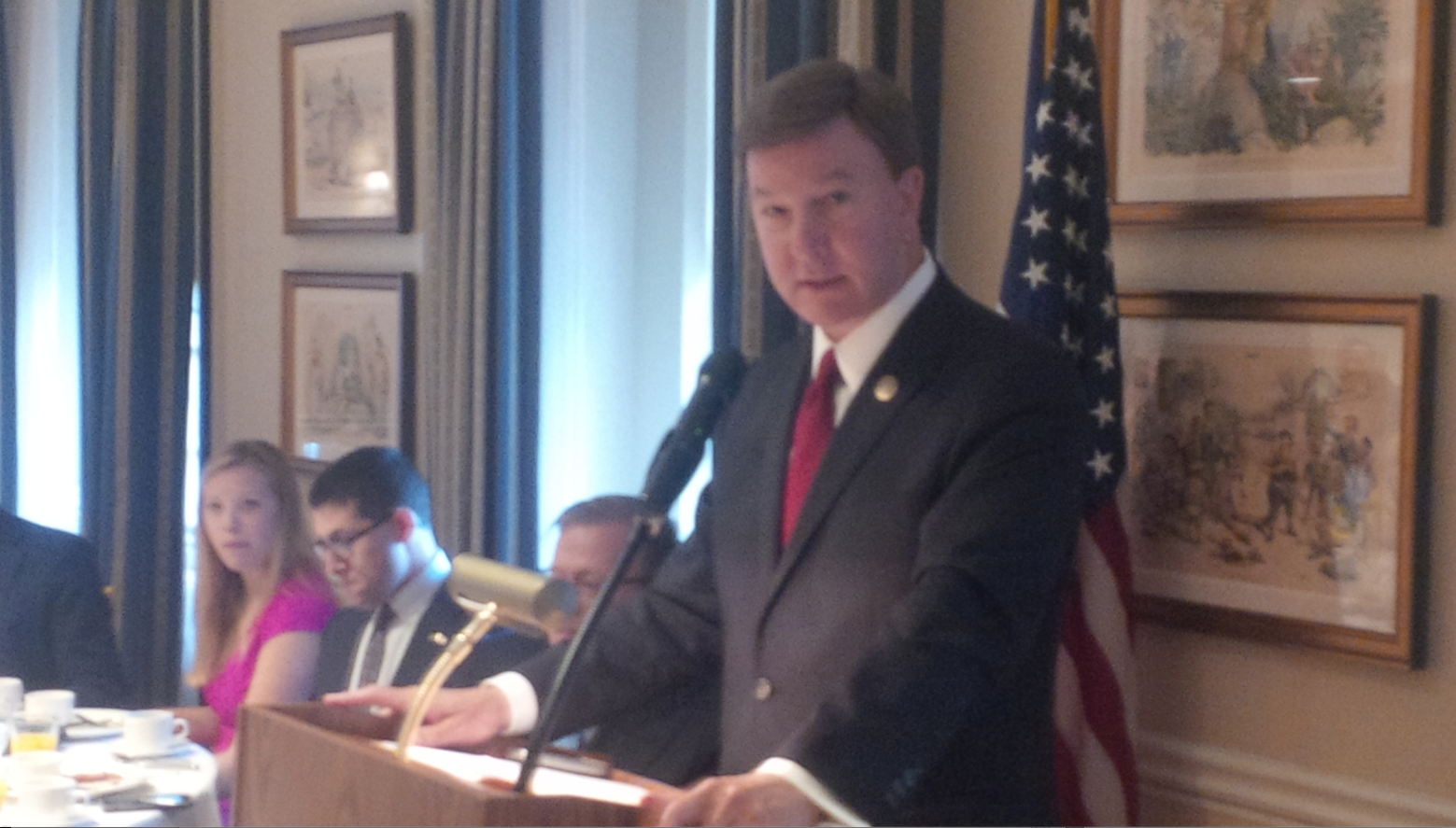
Rep. Mike Rogers (R-Ala.), chairman of the House Armed Services Subcommittee on Strategic Forces, predicted Thursday that Space Force language could be considered in Congress next year during an AFA Mitchell Institute breakfast oin Capitol Hill. Staff photo by Steve Hirsch.
Days after President Trump said he was “directing” the Pentagon to start work on creating a Space Force as a sixth US military service, one of the idea’s key backers in the House of Representatives predicted that language to set up the new entity could be ready for congressional consideration next year.
Rep. Mike Rogers (R-Ala.), who heads the Armed Services Subcommittee on Strategic Forces, also defended the notion of pulling national security space functions out of the Air Force during an AFA Mitchell Institute breakfast on Thursday. He spoke a day after Air Force leaders said in a letter to airmen that work to implement Trump’s directive would be deliberate, with no sudden shifts on the horizon.
Rogers said he expected the Pentagon’s interim review of the issue, due in August, will deal with the issue of setting up a Space Force, rather than a less-ambitious Space Corps, “because the Commander in Chief has said that’s what he wants.”
Congress will likely use the final version of the Pentagon report, which is expected Dec. 31, to write language for next year’s defense authorization act, “which will, I believe, enact the statutory framework” for the new service, he said.
Rogers does not expect the new Space Force to be “significantly more expensive than what we’re doing now,” although he conceded that setting up a separate service would be more expensive than setting up a Space Corps within the Department of the Air Force because it would involve a Secretary and separate structure. Other than that, though, he said, “we’re just taking the existing personnel, both military and civilian, that are working on space and segregating them,” along with the funding and the mission, and “developing a culture that’s going to be focused on space dominance.”
Rogers pointed to China and Russia as having reorganized their space capabilities, adding, “they are putting a much larger percentage of their military budget against this capability than we are, and they’re moving much faster.”
In a late-Thursday briefing with reporters, USAF’s top uniformed acquisition leader, Lt. Gen. Arnold Bunch, said the service continues to move forward with plans to establish a Space Rapid Capabilities Office and efforts to reorganize the Space and Missile Systems Center are already showing positive results. In addition, the service is taking advantage of authorities granted in previous defense authorization bills to delegate authorities down and speed up space acquisition.
“I’m already seeing differences and I”m confident that those are just the tip of the iceberg,” said Bunch. He said the service continues to follow through on its promise to prioritze space and speed up space acquisition, despite President Trump’s announcement this week.
“We’re executing exactly the way we’ve been executing to try to speed up acquisition in space, and treat it with the right discipline,” said Bunch. “Nothing in that aspect has changed. We’ll let the deliberative process play out. We’ll be a contributor to it, but we’re going to keep running the way we’re going until we get told otherwise.”